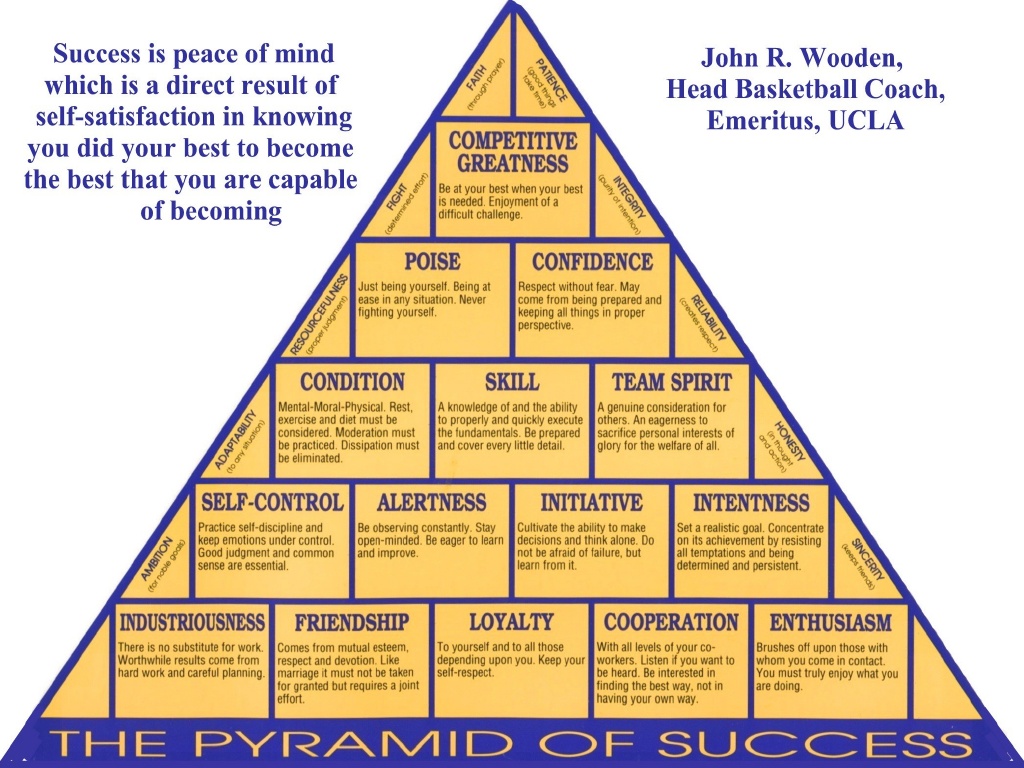“Never try to be better than anyone else.”
Those were the words imparted upon a young John Wooden by his father on the family farm in Centerton, Indiana. They were also the words that ran through his mind as a teacher who saw students break down when they didn’t receive top marks on a test.
Such were the expectations placed upon these students – by their parents, by the school, by society itself – that they couldn’t comprehend the C+ at the top of their term paper. It was a passing grade, an average grade, but everyone always said they were more than average. They were brilliant. They were the best. They were winners.
Wooden knew plenty about winning. While playing professional basketball prior to working as a teacher, he was the first player to be named an All-American champion three times. As a coach, he’d earnt the nickname ‘The Wizard of Westwood’, and was on his way to becoming one of the greatest the sport had ever seen. He knew that such obsession with winning, with being a winner, was toxic and misinformed.
What mattered, he knew, was success.
Trying to explain that to students of a system that equated chances of future success with the ability to prove you were better than everyone else in the room proved understandably difficult. Still, he persevered, encouraged by this poem by an anonymous author:
No written word,
No spoken plea,
Can teach our youth,
What they should be.
Nor all the books,
On all the shelves,
It’s what the teachers,
Are themselves.
And so, over 14 years, Wooden worked on a structure through which to best explain his views on how to make the most out of life, and ourselves. The result was The Pyramid of Success.
At the top stood competitive greatness, but unlike the school marking system, this competition revolved around internal challenge. Founded on strong, positive values, such greatness was not based on being the best, but being your best.
Anyone in the pursuit of excellence can apply the pyramid to their own lives. Concerning themselves with character, not reputation, they are driven by honesty, love, and the knowledge that they are ultimately responsible for what success comes their way.
Wooden is clear that this success does not equal winning. He says he lost games in which his team outscored the opponents, and won others when they were outscored. It’s not the buzzer that defines the victor. Not the trophy cabinet that defines greatness. It’s the ability to get out on the court, give the best performance you are capable of, and no matter what the scoreboard says, return for the next match and do it all again.
That is what matters at the end of the day. The understanding that, however events unfolded between the time we get out of bed and the time we shut our eyes for the night, we did the best that we could.
Commit to the work, and to yourself, and the success will follow.


I really enjoyed this article you’ve reprinted.
The previous time I have read something alike good was with this
specific informative article at https://skischule-flims-laax-falera.ch/a/. Thankyou for you
deep understanding of this issue and also for sharing it
with all of us. The terminology of this article is amazing.
Keep up the good work!